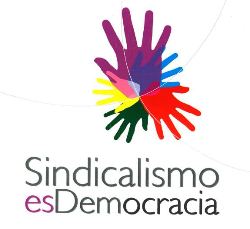Since 2010, the social organisation the Colombian Consultancy for Human Rights and Displacement (CODHES) and ISCOD-Colombia have been driving forward a project entitled Garantizar el derecho de las víctimas a la verdad, la justicia y la reparación (Safeguarding Victims’ Rights to Truth, Justice and Compensation), which aims to build on the moral strength of victims of the violence perpetrated against trade unions to acknowledge the social and political significance of the trade union movement as a cornerstone of a democratic system and to encourage the State to take steps to safeguard the right to freedom of association and collective redress.
The event held on 14 February 2012 formed part of efforts to disseminate the project’s findings. It was attended by representatives of a range of social organisations, local public authorities and cooperation bodies, trade union leaders and the university . The UGT delegation was headed up by its International Policy Secretary, Manuel Bonmatí.
Violence against trade unions in Colombia
Since 1984, according to the National Trade Union School (ENS), a total of 2,878 trade unionists, both male and female, have been murdered for defending human rights, freedom of association and freedom of assembly in Colombia.
In 2010 alone, according to the ITUC’s 2011 Annual Survey of Violations of Trade Union Rights (1), 443 attacks on the life, freedom or safety of trade unionists or members of their families were recorded. According to the ENS, a total of 52 victims lost their lives.
Since the mid-1900s, trade unionists have suffered intimidation, forced displacement, harassment, kidnap and arbitrary arrest.
The lack of political will to equip the justice system with the tools it needs, coupled not only with politicisation of that very same justice system, which results in certain crimes not being prosecuted, but also with the extremely high crime rate itself, has caused the justice system to buckle and means that the relevant investigative bodies do not have the resources they need to solve such crimes. Against this backdrop, according to some reports, despite massive efforts over 96% of crimes are believed to go unpunished (2).
The effect of this level of violence has been to prompt a dramatic decline in the number of trade union workers and the number of active trade unions.
Notes
(1) 2011 Annual Survey of Violations of Trade Union Rights. International Trade Union Confederation (ITUC)
(2) Report on instances of human rights violations against trade unionists, compiled by the Friedrich Ebert Stiftung in Colombia (FESCOL)
Communication Section. ISCOD Technical Office. Madrid, 20 February 2012


